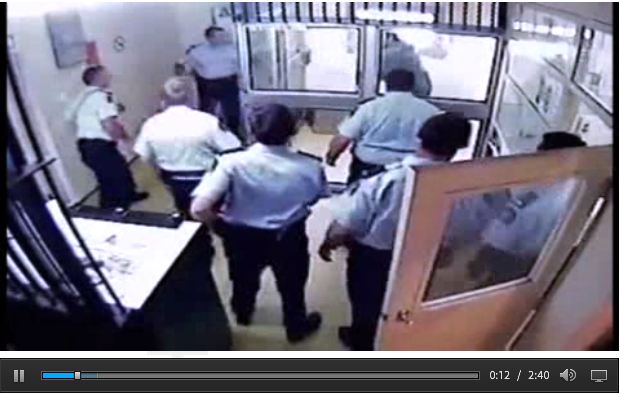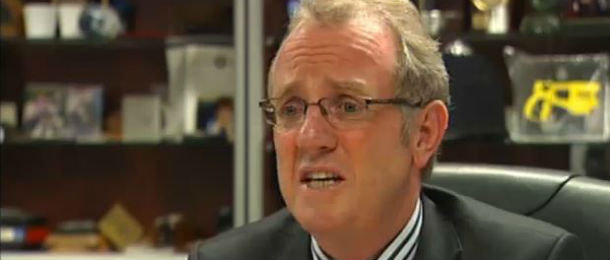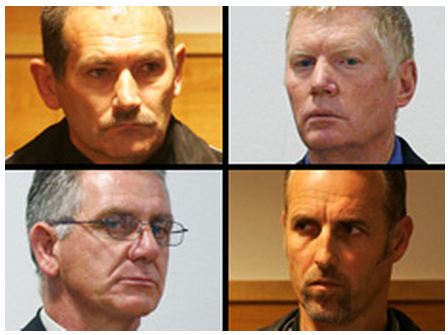Lauda Finem has an up coming story which deals with the long term effects of police malfeasance, serious injuries such as CPTSD and PTSD. In the meantime why not read another victims story, the Rawiri Falwasser case, seen though the lens of Greg O’Connor’s behaviour in and around New Zealand Police misconduct as reported by Dr Brian Edwards. The Falwasser case is interesting because its raised it head again, this time in the employment court with one of the officers involved alleging serious police corruption:
“I have been wanting to say this for a long time. Police Association President, Greg O’Connor does himself and the police officers he represents a grave disservice by assuming the role of Counsel for the Defence with every complaint or criticism that is levelled against his members. I use the word ‘every’ advisedly, since I honestly cannot remember an occasion when I have heard Mr O’Connor admit that the police had got it wrong or when he failed to present a rationale or excuse for their behaviour. The result is that the currency of his argument is debased. No sensible person believes that the police are without flaw or that they always get it right. Yet that essentially seems to be Mr O’Connor’s position. Today’s news provides an example.
The just-released report of the Independent Police Complaints Authority into the 2006 police-cell beating of Rawiri Falwasser found the actions of the four police officers involved ‘unnecessary, unreasonable and unjustified’. Falwassser, arrested for unlawfully taking a car, had refused to have his fingerprints taken or sign a Bill of Rights form. When he refused to be moved to another cell, he was subjected to a 20-minute beating by the officers and pepper-sprayed 65 times. Stuff reporter Ian Steward takes up the story:
‘They sprayed the burning mist into his cell through vents until a doctor who attended said he could not see Falwasser through the haze.
‘Falwasser received a 6-cm cut to his head and later said he thought he would die of suffocation from the pepper-spray.
‘His vision was blurred and he felt as if his face was burning. He later described it as feeling like hot water being poured over his body but without any physical burns.
Clockwise: Police Sergeant Keith Parsons, Senior Constable Bruce Laing, Constable John Mills and Sergeant Erle Busby were all found not guilty of assault.
‘For several weeks after the incident he suffered from headaches and dizziness and years later he was diagnosed with post-traumatic stress over the incident.’
A jury found the four officers not guilty of assault in 2008, but Falwasser was awarded $30,000 by a High Court judge earlier this year in compensation for breach of his human rights.
An internal disciplinary tribunal also found the officers guilty of misconduct.
In today’s finding, IPCA Chair Justice Lowell Goddard said the use of force was unjustified, and the type of force unnecessary and unreasonable.
‘There was no urgent need to move Mr Falwasser. He should have been left in the holding cell till he had calmed down and agreed to provide fingerprints. The use of an escalating and inordinate amount of pepper spray simply exacerbated the situation.’
This is how Greg O’Connor responded to the IPCA’s findings, as reported by Stuff.
Police Association president Greg O’Connor said in hindsight it was easy to think how the officers should have reacted.
“Unfortunately the police do not have hindsight or time when they deal with serious situations like this.”
The four officers were trying to resolve a very difficult situation as best they could, he said.
“In hindsight they may acted differently but at the time they were doing what they thought was best.”
Well, hindsight be buggered. No one who saw the CCTV footage on television of these four mean beating Falwasser and pumping so much pepper spray into the cell that a doctor found it impossible to see through the haze, would have needed hindsight to know that this was police brutality, pure and simple. Falwasser was treated like a caged animal. It was simply horrifying to watch.
Nor, as Justice Goddard notes, was the situation particularly serious, until the beating and pepper-spraying began. It became serious then.
As for Mr O’Connor’s suggestion that ‘at the time’ the officers ‘were doing what they though best’, it has no credence whatsoever. Indeed, given the findings of the police’s own disciplinary tribunal and the IPCA’s report, it merely adds insult to injury.
Finally, Mr O’Connor says he hopes this will be ‘the final chapter’ for everyone involved. It will certainly not be the final chapter for Mr Falwasser, still suffering from post-traumatic stress disorder resulting from the incident.
As President of the Police Association it is Greg O’Connor’s job to look after the interests of police officers in this country. No doubt he does it well. But it is not his job to defend the indefensible. And it is not in the best interests of his members.
Source: It’s Time for Greg O’Connor to Stop Defending the Indefensible
Related articles
- Ex-cop accuses senior officers of corruption (laudafinem.com)
- Gang charges thrown out after corrupt New Zealand police fake prosecution (laudafinem.com)
- Police poll dismissed as ‘skewed’ (laudafinem.com)
- New Zealand Gangs attempting to infiltrate police (laudafinem.com)
- New Zealand police: a “culture of lies” and stonewalling! (laudafinem.com)
- New Zealand Police, systemically corrupt? (laudafinem.com)
- New Zealand Police an international laughing stock:Detective Senior Sergeant Al Symonds (laudafinem.com)
- Corrupt New Zealand Cop poses as grieving father of police victim? (laudafinem.com)
- NZ Detectives Malcolm Thomas, Lew Proctor and their part in serious police corruption (laudafinem.com)
- Christchurch, New Zealand and its police: Travelers beware! (laudafinem.com)



No Comments
Thats why the other cop left the police force after the court appearance the short baldhead guy about Rawiris age,because he had liared,dont have to be a scientist to figure that out.(Im gone if I get caught telling liars so Ill get out now?}